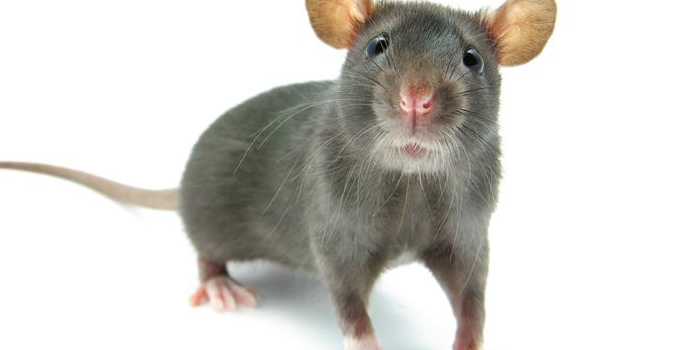
Mice are common experimental animals in laboratory research of biology and psychology fields primarily because they are mammals, and also because they share a high degree of homology with humans. They are the most commonly used mammalian model organism, more common than rats. The mouse genome has been sequenced, and virtually all mouse genes have human homologs. The mouse has approximately 2.7 billion base pairs and 20 pairs of chromosomes.[12] They can also be manipulated in ways that are illegal with humans, although animal rights activists often object. A knockout mouse is a genetically modified mouse that has had one or more of its genes made inoperable through a gene knockout.
Reasons for common selection of mice are that they are small and inexpensive, have a widely varied diet, are easily maintained, and can reproduce quickly. Several generations of mice can be observed in a relatively short time. Mice are generally very docile if raised from birth and given sufficient human contact. However, certain strains have been known to be quite temperamental.




